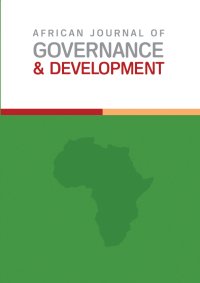Introduction
Main Article Content
Abstract
The desire for the advancement of human rights, the creation of world peace and the need for
safety and security within and across national borders has, in the past five decades, increased the
need for international cooperation. This is evidenced by the creation of supranational and regional bodies with political and economic interests. The United Nations, the African Union, the Southern African Development Community and the Economic Community of West African States (ECOWAS) are cases in point. While countries generally maintain their sovereignty, most of their legislations and domestic policies experience a degree of international influence. In other words, the traditional approach of sovereignty that posits its values on territorial integrity, is being, in the main, gradually replaced by the need for countries to develop the capacity to act and win acceptance from the regional or international bodies.
Article Details

This work is licensed under a Creative Commons Attribution-NonCommercial-NoDerivatives 4.0 International License.
